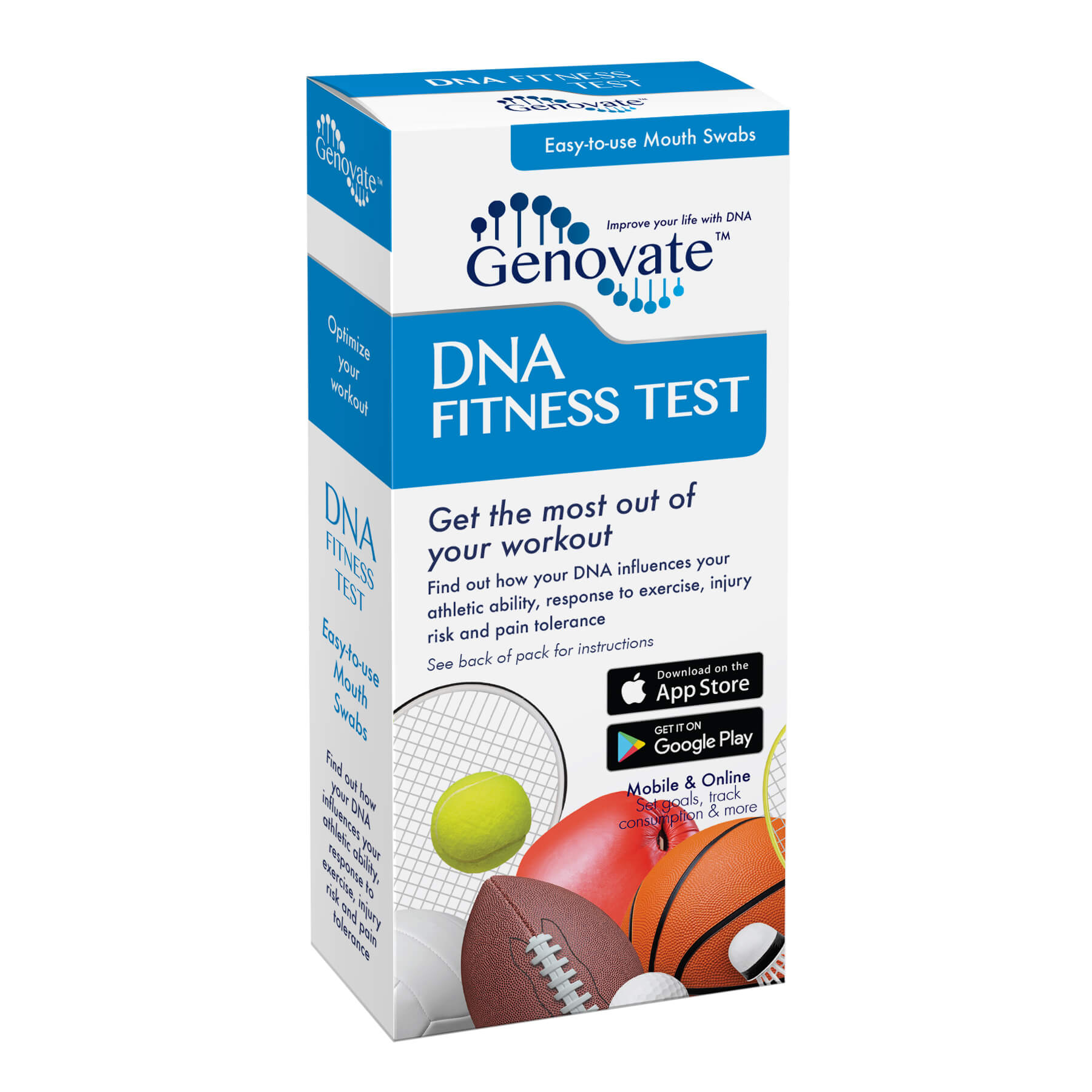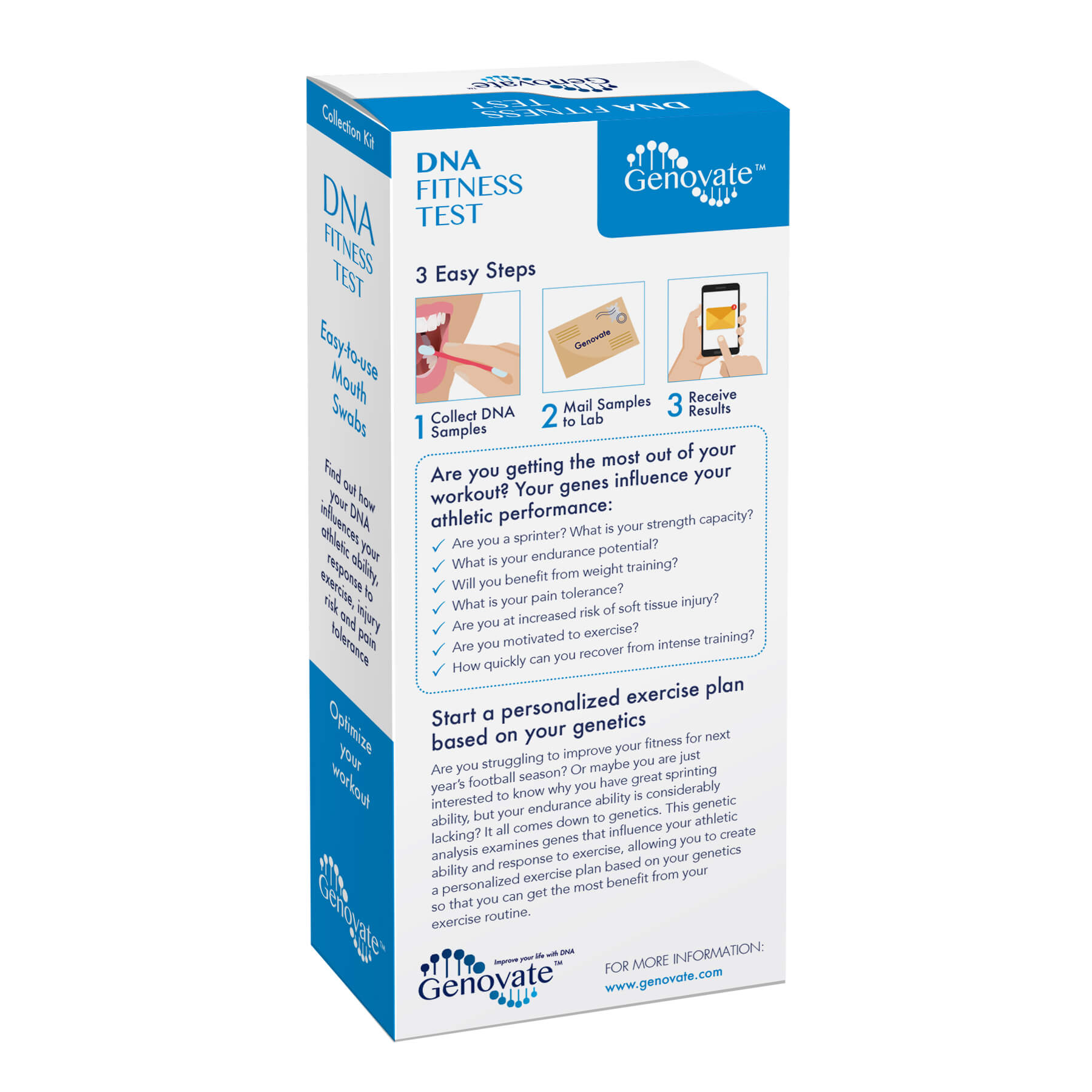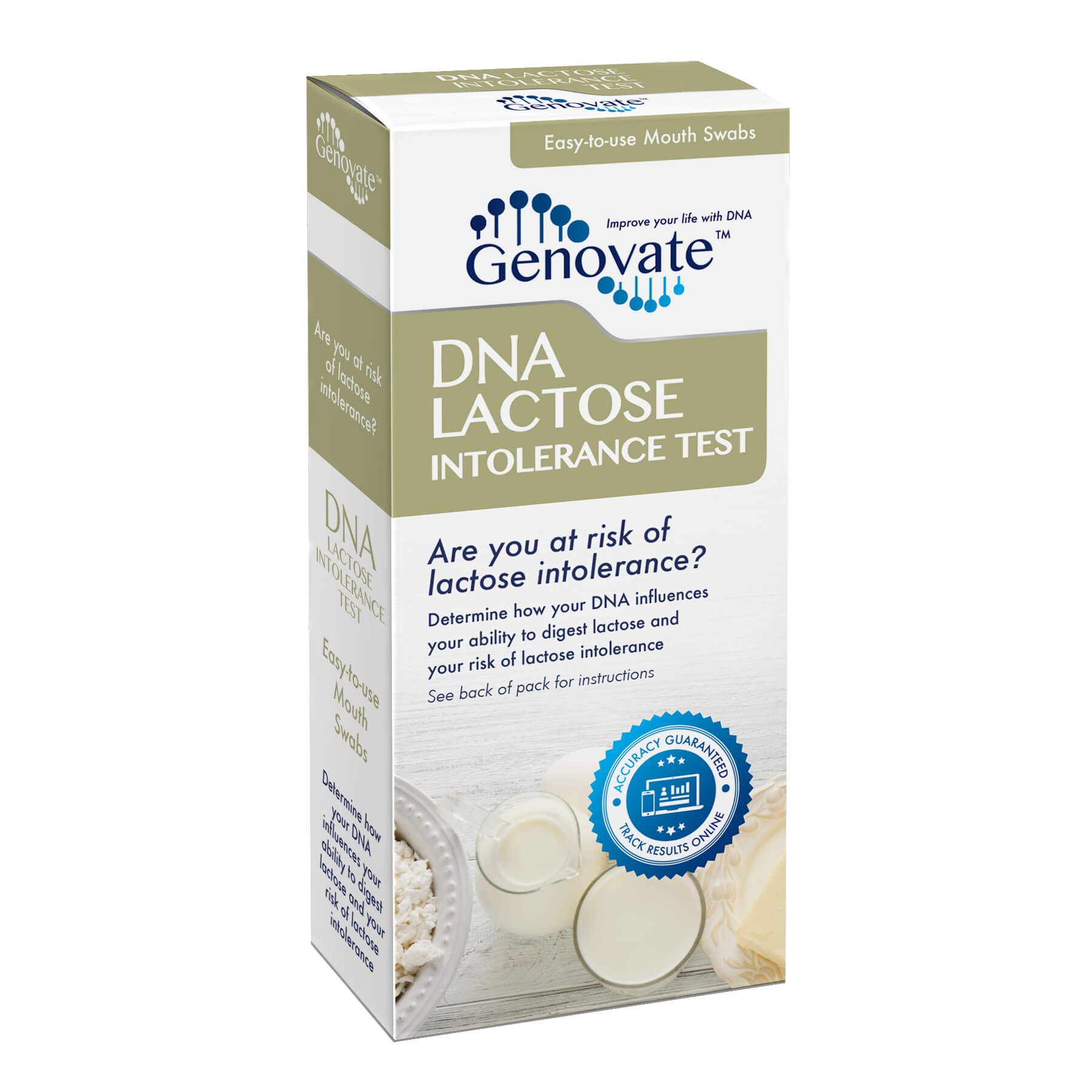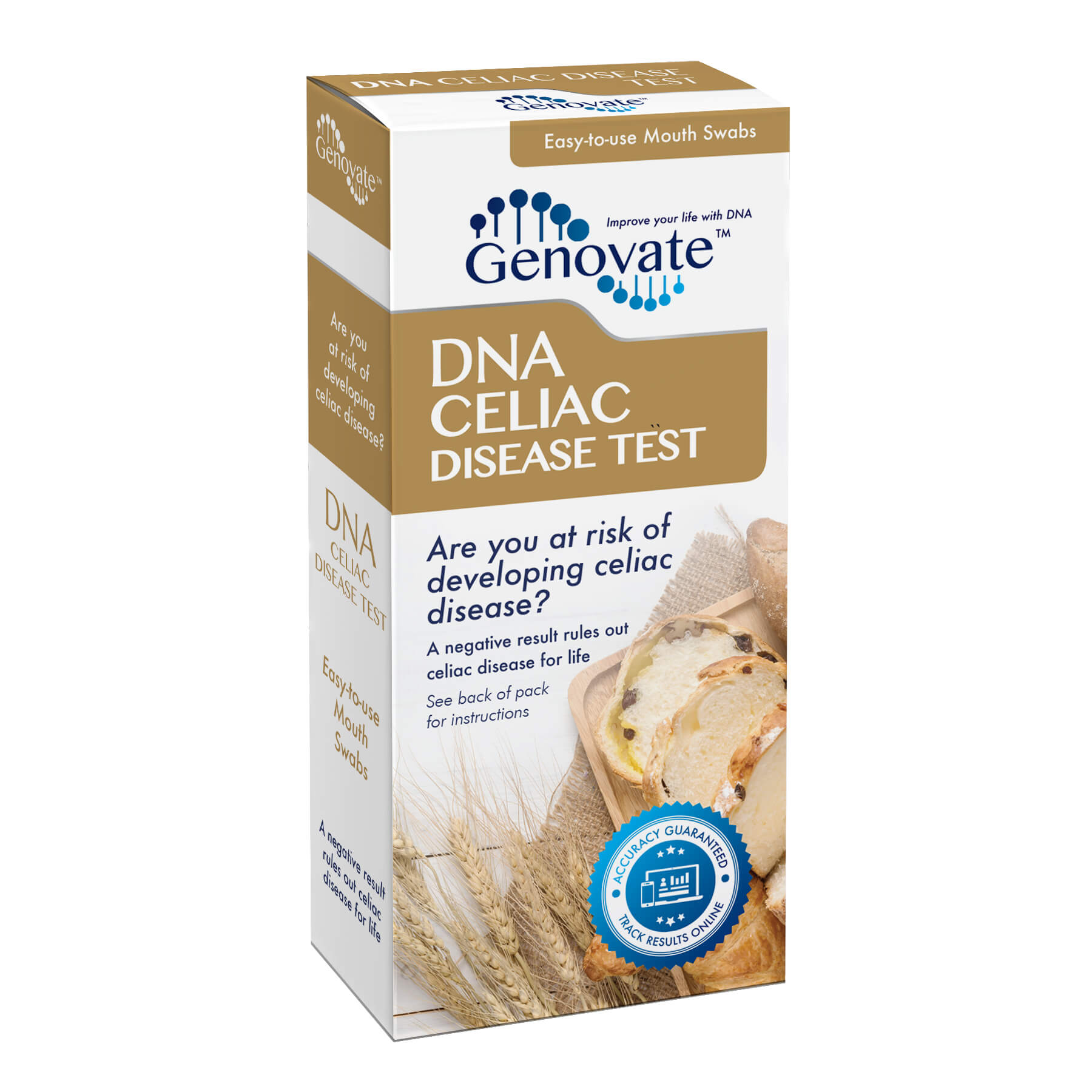- Are you a sprinter?
- What is your endurance potential?
- Will you benefit from weight training?
- Are you affected by pain?
- Are you at increased risk of soft tissue injury?
- Are you motivated to exercise?
- What is your strength capacity?
- How quickly can you recover from intense training?
- Identify genetic variants that influence your athletic ability and response to exercise
- Understand your risk of soft tissue injury and Achilles tendinopathy
- Find out how well you can tolerate pain and how you will respond to pain medication when injured
- Find out which type of exercises are most beneficial for your muscle type
- Start a personalized exercise plan based on your DNA to get the best results
- PPARD – burning fat for energy
- VEGFA – blood vessel formation to improve oxygen supply
- ACE – blood pressure regulation and muscle efficiency
- ADRB2 – turning off the fight or flight response
- PPARA – slow-twitch versus fast-twitch muscle fibres
- ACTN3 – the “sprinter” gene
- AGT – blood pressure regulation and growth hormone levels
- ACVR1B – muscle signalling cascade that controls muscle mass and muscle strength
- IL6 – messenger molecule and contributes to muscle growth
- PPARGC1A – aerobic capacity improvements
- PPARD – increases in “good” HDL-cholesterol
- MCT1 – ability to use lactate as an energy source
- BDNF – exercise motivation
- CRP – heart rate recovery
- COL1A1 – risk of soft tissue injury
- COL5A1 – risk of Achilles tendinopathy
- COMT – pain tolerance and required morphine dose




















